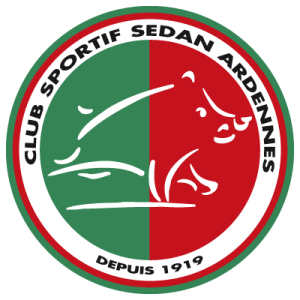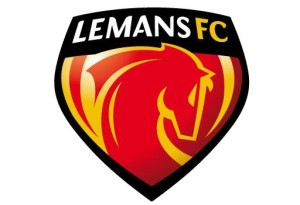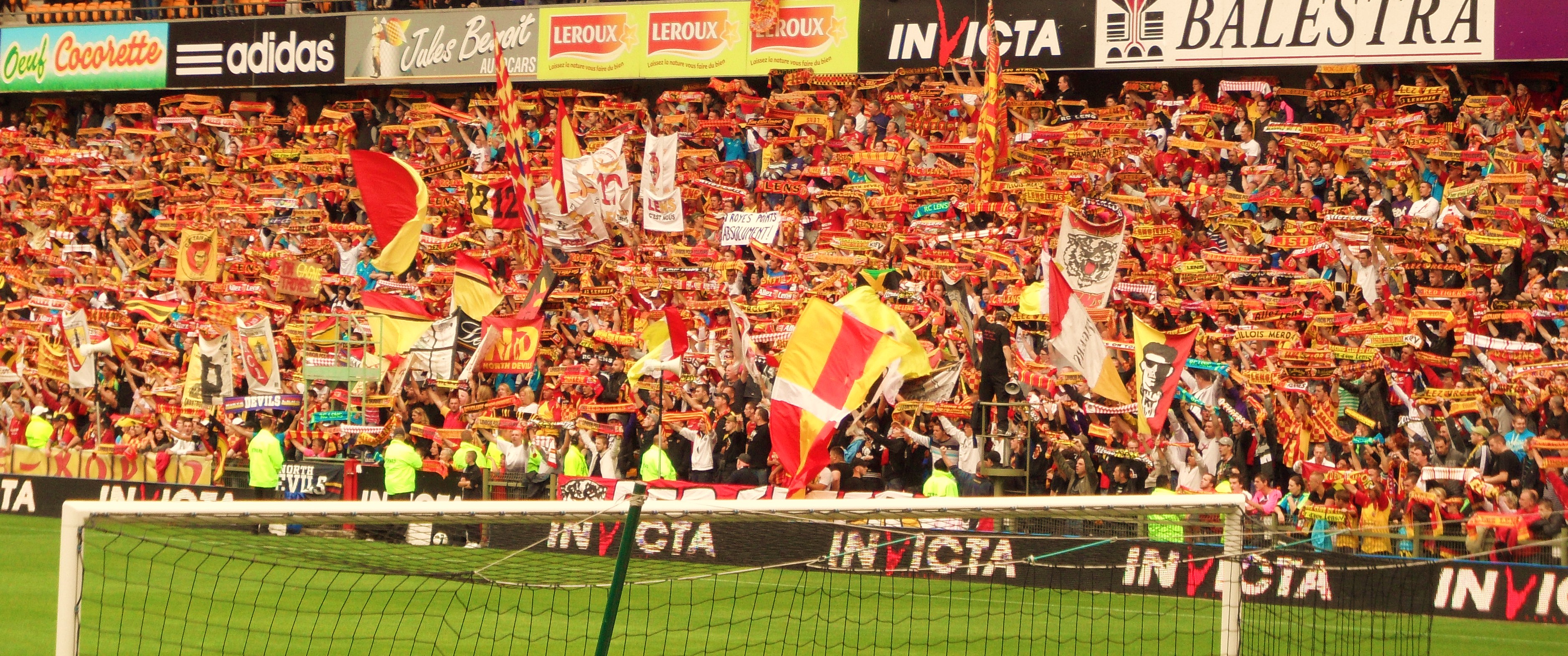You may already be aware of the travails of AS Cannes, who were facing a very uncertain future, but several other clubs are also in financial difficulties which mean that sporting penalties can be applied. Such decisions are in the hands of the Direction Nationale du Contrôle de Gestion (DNCG) which audits the accounts of clubs in the top five tiers of French football (Ligues 1 and 2, National, CFA and CFA2) each June. They’ve been particularly busy this year, and we are now in the midst of the appeals process as several clubs are fighting for their footballing lives.
The names of many are august, and follow on from sporting relegation; this may look like kicking people when they’re already down, but indicates the perilous nature of football finances, where relegation can seriously affect revenues, and thus turn sporting assets – the players – into financial liabilities. Full professionalism in French football ends mid-way down the third tier (National), so being knocked down further has a massive effect on a club’s ability to retain players, let alone strengthen a squad. In addition, CFA is organised regionally, and only group winners get promotion; thus, relegated sides can easily get stuck at that level. With the DNCG able to impose wage constraints as part of the audit process, clubs may be prevented from taking a gamble in keeping existing players on to try to come back up.
Cannes is an example of this – after relegation to National in 2001, they lost their professional status three years later; in 2011 they were sent down to CFA by the DNCG. While they were successful in avoiding bankruptcy (and thus knocked down to replace their reserve team in the DHR – the Division d’Honneur Regionale – the seventh tier), due to a new financial plan and a grant from local government of 800,000, they are under wage constraints. They therefore have to try to rebuild their squad for little if not nothing – sighs of relief that it isn’t worse, therefore, but it will be very difficult for them to start climbing back up.
 Sedan, relegated from Ligue 2 to National at the end of last season, appealed against a further administrative relegation to CFA, which was due to be heard by the FFF on Monday, 15th July. However, with a potential backer apparently pulling out at the last minute, they had to pull their appeal – rumoured Saudi interest, in the end, came to nothing. They could now face bankruptcy – their next crunch meeting is a tribunal hearing on Thursday for non-payment of charges due to URSSAF (eg the equivalent of national insurance and other similar amounts) – which could mean a further drop down the pyramid. In May, their U19 team faced off against Bordeaux in the final of the Coupe Gambardella at the Stade de France; they lost, but could now be the core of the senior team.
Sedan, relegated from Ligue 2 to National at the end of last season, appealed against a further administrative relegation to CFA, which was due to be heard by the FFF on Monday, 15th July. However, with a potential backer apparently pulling out at the last minute, they had to pull their appeal – rumoured Saudi interest, in the end, came to nothing. They could now face bankruptcy – their next crunch meeting is a tribunal hearing on Thursday for non-payment of charges due to URSSAF (eg the equivalent of national insurance and other similar amounts) – which could mean a further drop down the pyramid. In May, their U19 team faced off against Bordeaux in the final of the Coupe Gambardella at the Stade de France; they lost, but could now be the core of the senior team.
(In a strange twist, if someone goes down, another team has to come up, so it looks like Paris FC have been reinstated in National, after being relegated on results at the end of the season)
 Le Mans, similarly relegated from Ligue 2 on the basis of results on the field, were initially sent down further to CFA, but then things got even worse; due to their “situation financière catastrophique” (a deficit of over €14m) they are now facing playing their football in the Division d’Honneur. Desperately trying to cut costs, they have cancelled several player contracts (most recently of Giorgi Makaridze, Patrick Ekeng Ekeng and Massiré Kanté) as well as selling Morgan Sanson to Montpellier for €700,000, but bankruptcy could now follow. In 2010 they were playing in Ligue 1 – trying to get back up, and having moved into a new stadium, they held onto as many players as possible, but having failed to rebound immediately, this became a problem. The DNCG imposed wage controls, and important players had to be let go to meet them; a vicious circle, familiar in such cases, resulted. Results, both footballing and financial, worsened, and now they face a stay in the sixth tier.
Le Mans, similarly relegated from Ligue 2 on the basis of results on the field, were initially sent down further to CFA, but then things got even worse; due to their “situation financière catastrophique” (a deficit of over €14m) they are now facing playing their football in the Division d’Honneur. Desperately trying to cut costs, they have cancelled several player contracts (most recently of Giorgi Makaridze, Patrick Ekeng Ekeng and Massiré Kanté) as well as selling Morgan Sanson to Montpellier for €700,000, but bankruptcy could now follow. In 2010 they were playing in Ligue 1 – trying to get back up, and having moved into a new stadium, they held onto as many players as possible, but having failed to rebound immediately, this became a problem. The DNCG imposed wage controls, and important players had to be let go to meet them; a vicious circle, familiar in such cases, resulted. Results, both footballing and financial, worsened, and now they face a stay in the sixth tier.
More happily, Gazelec Ajaccio have managed to avoid ‘retrogradation’ to CFA after getting hold of a €619,000 grant from the Corsican Assembly to sort out their stadium and winning their appeal to stay in National. Lens were similarly successful in retaining Ligue 2 status after an earlier provisional relegation to National. Tours FC, tenth in Ligue 2 last season, also faced being dropped to National – despite finding a buyer, the new financial plan initially did not convince, but on appeal, they will retain their Ligue 2 status, under wage constraints (although that is not believed to affect their ability to bring in transfers).
It is noticeable that many of the clubs facing financial problems are supported by local government: as well as the grants for Gazelec and Cannes, Tours took the local mayor to their DNCG hearing. This highlights not only the importance of these clubs to the local community, but also perhaps the difference between those beyond help, and those with a stronger chance of survival. It is very easy, when the focus is currently on the stupid amounts of money being thrown about by some teams, to see all of football as a bloated expanse of uber-capitalism, and the amounts involved in the struggles of lesser clubs as peanuts; that isn’t the full story. Clubs must run within their means, and while some of those in the lower tiers may not necessarily be self-sustaining, given the civic support received, the actions of the DNCG are meant to ensure that things don’t get ridiculous.
Even higher up the league pyramid, there is evidence of this – Lyon’s bitter communique after the sale of Anthony Martial to Monaco may have seemed extraordinary, but demonstrates the financial pressures that they are under; as a publicly-quoted entity, and needing to balance the books before year-end (30 June) they had to get money in, and if Gomis couldn’t be sold, somebody else had to be. They are not quite at the hand-to-mouth level of the clubs facing DNCG sanctions, of course, but they are limited in what they can do.
So, while the big financial news is Blanc’s contract with PSG, and the millions washing around the transfer market, this is a difficult period for many clubs, including former champions and great names of French footballing history. Clubs at every level feel the financial pressure of trying to compete on an uneven playing field – newly-promoted Monaco are second-favourite for the title with the bookies, due to their billionaire backing. The polarisation of football is not just an issue for the title race, however, but affects the game at all levels; success can be fleeting, and failure can mean an unstoppable decline, and a fade into history.

